-
 +28 +6
+28 +6How to Make a Police Shooting Disappear: The Tamir Rice Story
Tamir Rice was a 12-year-old Cleveland boy shot to death by the police for playing with a toy gun. This is how a group of government officials made the case go away without a trial. By Sean Flynn.
-
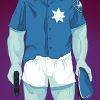 +18 +1
+18 +1Badge of Dishonor
Top Oakland Police Department Officials Looked Away as East Bay Cops Sexually Exploited and Trafficked a Teenager. By Darwin BondGraham and Ali Winston. (June 15, 2016)
-
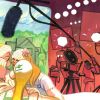 +6 +3
+6 +3A Diamond and a Kiss: The Women of John Hughes
There was a reason none of the teens in the legendary director's films were real rebels, but rather outsiders with an eye on upward mobility. By Soraya Roberts.
-
 +23 +7
+23 +7The Strange Story of a Murdered Banker in Puerto Rico
Fraud, Santeria rituals and an unsolved killing at Doral Bank. By Zeke Faux.
-
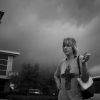 +26 +4
+26 +4Police, Prosecutors and Judges Rely on a Flawed $2 Drug Test That Puts Innocent People Behind Bars
Tens of thousands of people every year are sent to jail based on the results of a $2 roadside drug test. Widespread evidence shows that these tests routinely produce false positives. Why are police departments and prosecutors still using them?
-
 +19 +6
+19 +6MuckRock's Approach Is Working, One Public Records Request at a Time
On July 4, the Freedom of Information Act turns 50, and yet our government is more secretive than ever. One Boston journalism startup is trying to change that—and their revolutionary approach to transparency is working, one public records request at a time. Massachusetts is the birthplace of the American Revolution. But lately, the “We the People” spirit has been conspicuously lacking when it comes to government transparency.
-
 +19 +4
+19 +4Blindsided: A Dream Engagement Turned Nightmare
Don Huckstep thought he’d found love in his hometown of Fowler, Indiana. But when Teresa Jarding vanished, it foreshadowed a series of bizarre discoveries. By Mary Milz.
-
 +19 +2
+19 +2There’s No Such Thing as Free Will
For centuries, philosophers and theologians have almost unanimously held that civilization as we know it depends on a widespread belief in free will—and that losing this belief could be calamitous. Our codes of ethics, for example, assume that we can freely choose between right and wrong. In the Christian tradition, this is known as “moral liberty”—the capacity to discern and pursue the good, instead of merely being compelled by appetites and desires.
-
 +33 +9
+33 +9The Secrets in Guatemala’s Bones
One afternoon in 1994, during his senior year in college, Fredy Peccerelli sat at an anthropology conference in Atlanta and stared at the man onstage. Peccerelli had seen the renowned bone detective Clyde Snow before, but only in a textbook. Snow, who was in his 60s, leaned forward at the lectern, speaking in his genial Texas drawl about blindfolded skulls and bodies dumped in clandestine graves. He wore his usual attire of an Irish tweed jacket, cowboy boots and a fedora.
-
 +1 +1
+1 +1Refugees Encounter a Foreign Word: Welcome
How Canadian hockey moms, poker buddies and neighbors are adopting Syrians, a family at a time. One frigid day in February, Kerry McLorg drove to an airport hotel here to pick up a family of Syrian refugees. She was cautious by nature, with a job poring over insurance data, but she had never even spoken to the people who were about to move into her basement.
-
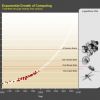 +23 +4
+23 +4The Artificial Intelligence Revolution
Part 1 of 2: "The Road to Superintelligence". Artificial Intelligence — the topic everyone in the world should be talking about.
-
 +16 +3
+16 +3Hell Sucks
There is a map of Vietnam on the wall of my apartment in Saigon, and some nights, coming back late to the city, I'll lie out on my bed and look at it, too tired to do anything more than just get my boots off. The map is a marvel, especially absorbing because it is not real. For one thing, it is very old. It was left here years ago by a previous tenant, probably a Frenchman since the map was made in Paris.
-
 +40 +11
+40 +11The Fugitive, His Dead Wife, and the 9/11 Conspiracy Theory That Explains Everything
He worked for FEMA at ground zero, but then Kurt Sonnenfeld became a suspect in the mysterious and high-profile death of his wife. Now he's found a new life in South America and become a folk hero by telling an amazing story about the World Trade Center attacks. Did Sonnenfeld get away with murder, or is he just an innocent abroad? Evan Hughes tracked him down in Argentina and asked the big questions...
-
 +27 +4
+27 +4The New Yorker, BuzzFeed, and the push for digital credibility
The fragmented nature of the digital landscape has created a conundrum for magazines and other news outlets. Being seen as reliable is crucial to a news organization’s survival. But if readers are finding stories in every corner of the Web, and may not even remember where they first read them, how can publishers build a loyal audience? Do brands even matter anymore?
-
 +11 +1
+11 +1Who got rich off the student debt crisis
A generation ago, Congress privatized a student loan program intended to give more Americans access to higher education. In its place, lawmakers created another profit center for Wall Street and a system of college finance that has fed the nation’s cycle of inequality. Step by step, Congress has enacted one law after another to make student debt the worst kind of debt for Americans – and the best kind for banks and debt collectors. Today, just about everyone involved in the student loan industry makes money off students – the banks, private investors, even the federal government.
-
 +38 +8
+38 +8Edward Snowden’s Strangely Free Life
Edward Snowden lay on his back in the rear of a Ford Escape, hidden from view and momentarily unconscious, as I drove him to the Whitney museum one recent morning to meet some friends from the art world. Along West Street, clotted with traffic near the memorial pools of the World Trade Center, a computerized voice from my iPhone issued directions via the GPS satellites above. Snowden’s lawyer, Ben Wizner of the American Civil Liberties Union, was sitting shotgun, chattily recapping his client’s recent activities.
-
 +21 +3
+21 +3The Bears Who Came to Town and Would Not Go Away
The first bear appeared in town one morning in late August. It was a little after eight, and Nikolai, an elderly pensioner, had just come out to walk his cat. He joined a neighbor on a wooden bench outside their building, which the residents of Luchegorsk, a town in far eastern Russia, call the Great Wall of China because of its expansive length. The Great Wall stands on the shore of a large man-made lake where water from the town’s thermal power plant flows. In the summer, it’s hard to see much of the lake for the tall green reeds that line the banks. It was from this verdant thicket that the Asian black bear ambled out, loping slowly...
-
 +16 +4
+16 +4How To Survive A Lynching
Lawrence Beitler was sitting on the front porch of his home in Marion, Indiana, when someone asked him to tote his 8×10 view camera to the town square. It was past midnight on August 8, 1930, and Beitler, 44, was a professional photographer who mostly shot portraits of weddings, schoolchildren, and church groups. That night, he would be photographing a lynching. He “didn’t even want to do it,” according to a later interview with his daughter, “but taking pictures was his business.”
-
 +1 +1
+1 +1Private prisons are shrouded in secrecy. I took a job as a guard to get inside—then things got crazy
This is the biggest investigation we’ve ever published. Five chapters! Chapter 1: "Inmates Run This Bitch". Have you ever had a riot?" I ask a recruiter from a prison run by the Corrections Corporation of America (CCA). "The last riot we had was two years ago," he says over the phone. "Yeah, but that was with the Puerto Ricans!" says a woman's voice, cutting in. "We got rid of them." "When can you start?" the man asks. I tell him I need to think it over.
-
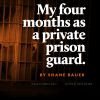 +49 +6
+49 +6Private prisons are shrouded in secrecy. I took a job as a guard to get inside—then things got crazy
I started applying for jobs in private prisons because I wanted to see the inner workings of an industry that holds 131,000 of the nation's 1.6 million prisoners. As a journalist, it's nearly impossible to get an unconstrained look inside our penal system. When prisons do let reporters in, it's usually for carefully managed tours and monitored interviews with inmates.
Submit a link
Start a discussion




















